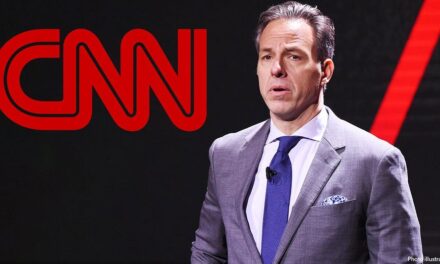The announcement of a military strike against Iran has sparked a fierce backlash from various factions, particularly among far-left activists and commentators who vehemently oppose both the action and the framing of Donald Trump as an “anti-war president.” The Southern California stronghold of anti-war activists showcased their disdain with raucous protests, while intellectuals and political analysts offered critiques rooted in deep skepticism of Trump’s foreign policy.
At the heart of this matter lies the perceptible disconnect between Trump’s characterization of himself as a defender of peace and the increasingly militarized rhetoric emanating from his administration. Among detractors, phrases like “military-industrial complex” and “imperialistic aggression” were commonplace as they condemned the looming action against Iran. This group believes such military actions contradict Trump’s self-portrayal and the narratives his supporters have constructed around his presidency.
Activists voiced their feelings at a recent rally in Los Angeles where placards reading “No War with Iran” were held high, drowned out occasionally by chants of “No More Blood for Oil.” The event, organized by the local chapter of “Peace for All” — a far-left organization committed to anti-imperialism — attracted crowds who braved the sweltering sun to make their point clear. Many speakers at the rally underscored the emotional toll that wars have on both American soldiers and innocent victims abroad, underscoring the notion that military conflicts disproportionately affect already marginalized communities.
“Trump is misleading the American people if he thinks he can brand himself an anti-war president while contemplating yet another military intervention,” proclaimed Amelia Sanchez, one of the rally’s principal speakers. “If he proceeds with this attack, he will be guilty of exacerbating the very conditions that fuel terrorism.” Sanchez called upon those present to make their voices heard, urging them to contact their elected representatives and demand restraint.
Critics of Trump’s foreign policy extend their analysis beyond mere rhetoric. They point to the administration’s actions in the Middle East, which include military involvement in Syria and support for Israel in various conflicts, as evidence of Trump’s proclivity toward militaristic strategies rather than peace-oriented solutions. The notion of Trump being an ‘anti-war president’ has been deemed a misnomer by many who closely monitor U.S. foreign policy under his administration.
In contrast to some of his predecessors, Trump took office promising to ‘bring the troops home.’ His supporters often cite the reduction in troop presence in certain areas as evidence of his commitment to less military engagement. However, when examining the larger scope of his military decisions and rhetoric, many argue that these moves are tactical rather than reflective of a genuine desire for peace.
The question of whether Trump deserves the “anti-war” label has been raised repeatedly, especially in light of recent comments made by high-ranking officials in his administration. Defense Secretary Mark Esper and Secretary of State Mike Pompeo have taken hardline stances against Iran, which were perceived as leading rhetoric that prefigured military strikes. Their statements have led critics to argue that the administration is ramping up tension rather than working toward any genuine dialogue.
In addition, analysts note the tendency for the left to challenge the military-industrial complex as a whole, insisting that criticism of Trump’s strategies cannot be parsed away from a broader disdain for military interventionism itself. A common refrain heard at the recent rally was that opposition should not be limited to a single politician, but should instead critique the structures enabling war-making.
“We cannot afford to forget that there are forces at play here that extend beyond Trump. This anti-war movement should unite all those wary of American exceptionalism,” remarked political scientist Dr. Raj Patel. Dr. Patel and others argue that continuing this fight necessitates dismantling a culture that valorizes war and militarism as acceptable solutions to international conflicts.
The implications for Democrats are particularly noteworthy, as many have grappled with how to articulate their position on foreign policy in response to Trump’s decisions. Some party leaders have asserted their opposition to war in general but face pushback from more hawkish elements within the party who have favored military actions, especially against nations like Iran.
The far-left community has critiqued mainstream Democratic leaders, claiming they are not adequately confronting the belligerent stance of the administration. Figures like Bernie Sanders have continued to advocate for peace but often seem drowned out by more mainstream voices pushing aggressive foreign policy positions. This dynamic creates a more complex landscape for a party hoping to appeal to both its establishment and progressive wings ahead of upcoming elections.
In Congress, some members have boldly condemned Trump’s actions and reassured constituents that they will work to reign in military aggression. Progressive representatives like Ilhan Omar and Alexandria Ocasio-Cortez have faced intense pressure to stand firm against military intervention, while others have sought middle-ground solutions. This ongoing debate further fractures the party, drawing clearer lines between isolationist sentiments and interventionist activist campaigns.
In light of these developments, activists are urging the public to remain vigilant and continue to speak out against foreign interventions. By rallying against military actions and promoting dialogues focusing on humanitarian aid rather than aggression, these groups hope to reshape both public opinion and political discourse on foreign policy.
The far-left’s objections to Trump’s planned actions serve to illuminate broader questions about the nature of American foreign policy—what it looks like, who it serves, and how it can be directed towards a more peaceful future. As protests, discussions, and scholarly critiques continue to emerge, many hope that they can foster a more substantive dialogue surrounding America’s role in the world.
Supporters of the anti-war movement believe they are in a pivotal moment. With tensions now at a boiling point, they argue that the decisions made at the highest levels of government have profound implications for years to come. The stakes in this geopolitical game are high, which reinforces the need for activists and informed citizens alike to pay close attention to the narrative being spun around Trump and Iran, lest they fall victim to a false dichotomy around peace and war.
Ultimately, as the dialogue unfolds, it will be imperative for voices from the far left and beyond to unite under the shared goal of advocating for peaceful relations instead of militaristic interventions. Focusing on diplomacy, respect for sovereignty, and humanitarian solutions, rather than resorting to armed conflict will be crucial in redefining how America interacts with nations across the globe.
As political tensions rise and geopolitical maneuverings continue, one thing remains clear: pushing for peace and accountability is a collective effort that requires rallying the masses and confronting the narratives that have long justified war as a means to achieve ends.
































